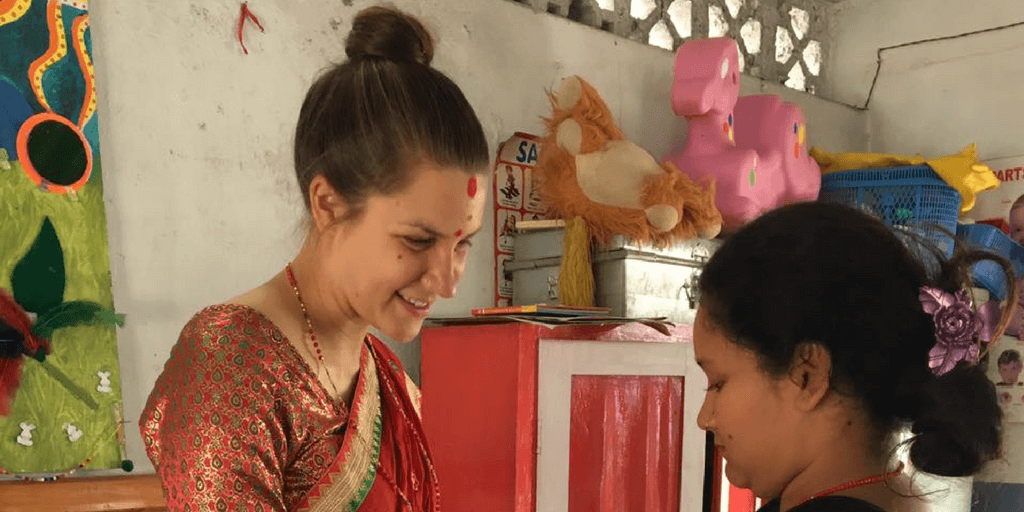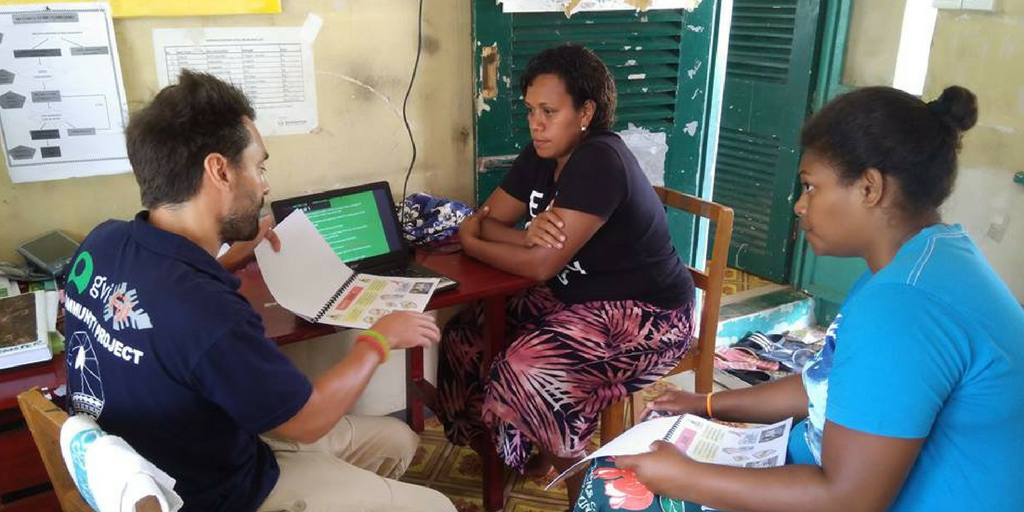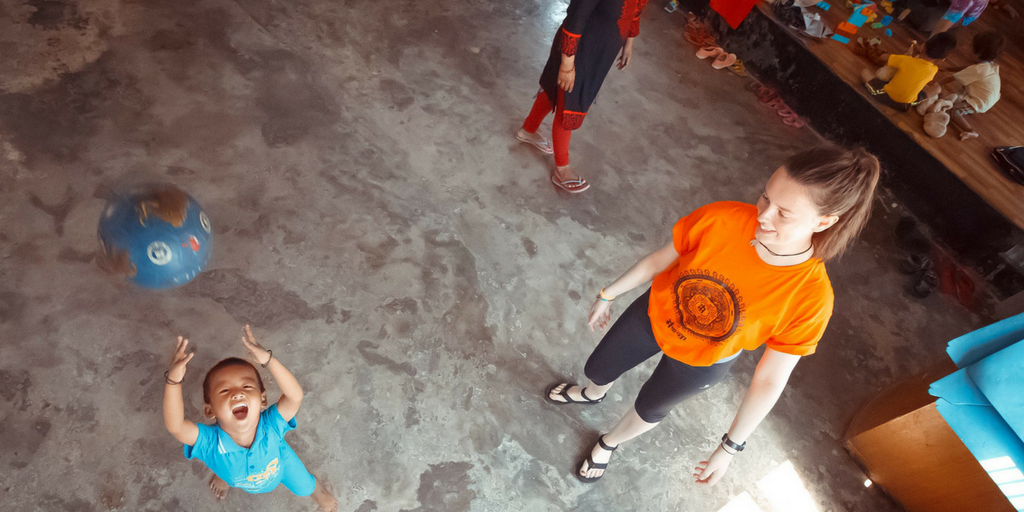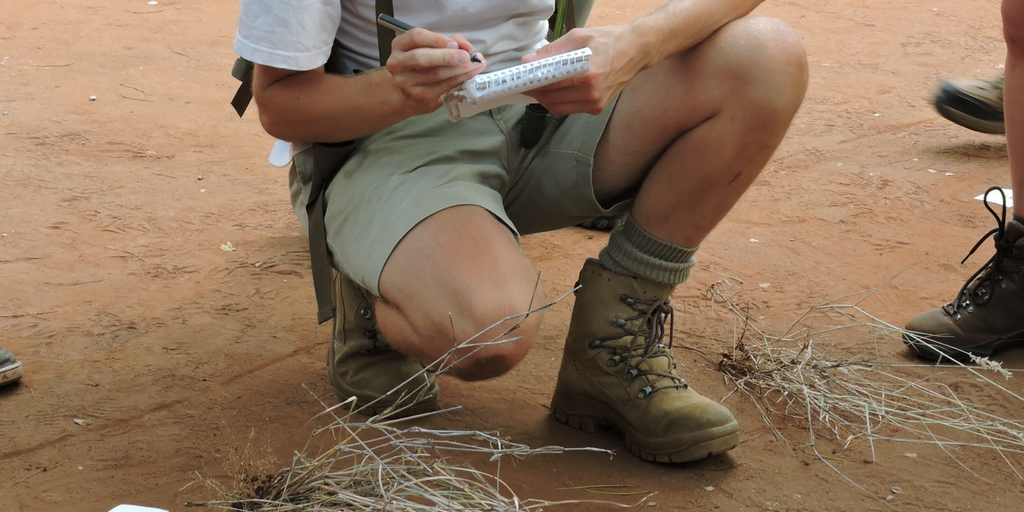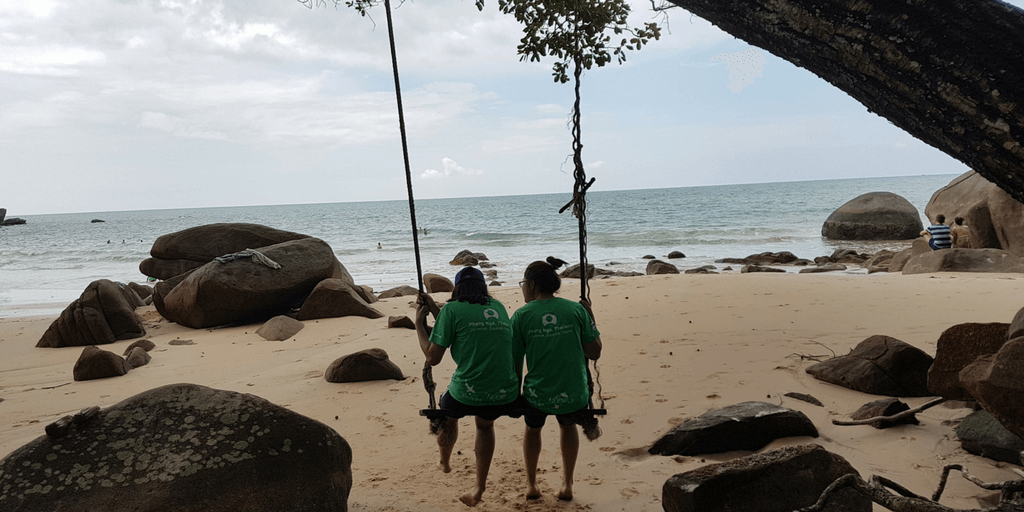Why Study Abroad
Jana Jansen van Vuuren
Posted: April 22, 2018
Many people still think of studying abroad as something extravagant and, as a result, unnecessary. You might think, ‘Of course studying abroad is great, we’d all choose it if we could, but is it really worth it?’ ‘Can’t I just get the same education locally at home?’ ‘My education already costs so much, how can I, my parents, or my sponsor possibly be asked to spend more?’
But the advantages of studying abroad for your career cannot be underestimated. While there are many positives about studying abroad, the long-term benefits are even more precious, even though they might be a little difficult to quantify.
Below we’ve listed ten of the most compelling reasons to study abroad, highlighting not only the pros of the experience itself, but its future benefits.
https://www.youtube.com/watch?v=z6bOi68XyS0
10 Benefits Of Studying Abroad
1) The Educational Benefits Of Traveling Abroad
While we doubt you need to be convinced that traveling is wonderful, exciting and life-changing, we know that you might have trouble persuading yourself and parents that studying abroad as a college student is valuable for your academic and professional future.
The truth is that the employment market you’ll be entering after school is a global one in a way it has never been before. While you can connect to international communities through the internet it just isn’t the same. Often, before you travel, you don’t actually know what you don’t know. That means you don’t know which questions to ask or put into a search bar to find out what you don’t know. Even watching something filmed in another country doesn’t give you that same information because you aren’t immersed in the location and the sights and sounds are distorted by the production process. This means students who don’t study abroad just aren’t really prepared for the world in the same way as those who do. Actually being in another country, really prepares you for working in new locations with international teams and organisations. You learn things you simply cannot learn over the internet, in films or in books.
Further Reading: 6 Ways To Deepen Your Travel Experiences
2) The Career Benefits Of Studying Abroad
The study abroad organisation IES found that students who do some part of their qualification in another location find it easier to land their first job and earned more when they started working than students who didn’t. The reason for this might be that students who have international experience are more marketable to hiring managers. Employers sometimes use it as a way of weeding out candidates. They know that these candidates are often more mature and emotionally intelligent than their counterparts. Other valuable skills like being able to speak another language or work well with people who do and solve problems on the spot might be some of the reasons why they are also willing to pay for students who have studied abroad.
AIFS another education organisation found that students are more satisfied with the jobs they had and that they had more job options. The reason for this might be that students who have studied or worked abroad are more aware of their interests, strengths, and weaknesses allowing them to choose their first job more wisely. Having a greater range of skills and a bigger international network than their classmates is likely why they might have more job offers.
If you aren’t interested in studying abroad particularly but would rather start gaining some work experience in the summer between school years, why not rather choose an internship.
Further Reading: Your Guide To GVI’s International Business Internships
3) The Pros Of Studying Other Cultures
Possibly the most highly valued skill you can master by going abroad is your ability to communicate effectively with persons who don’t share your culture or context. By travelling abroad you’ll be asked to question some of your basic assumptions and beliefs. Encountering other cultures can be either earth-shattering or mundane, but you’ll learn to challenge your assumptions about that culture and learn to look for the thread of humanity underneath superficial differences. Travel straightens out the misunderstandings we have. You’ll also learn more about what has meaning for people in other cultures and places and what those different causes mean to them. It’s not just about being more tolerant of other people, it’s not even about learning to accept or embrace them, it’s about learning to sympathise and communicate from this place of mutual understanding, trust and respect.
Further Reading: Karen Culture: History, Weddings and Clothing
4) The Additional Value You Get Out Of Your Education
If you’re in college, or even if you’re planning on going to college soon, you’ll know that higher education can be costly. That is why many people are thinking about whether a college degree is really worth it? Academic subjects are often so abstract and specific that their application isn’t immediately clear, to students, parents, and what is most concerning, to employers. There is growing worry that colleges aren’t preparing young people for the real world.
Spending time abroad teaches you skills like teamwork, global competency, problem-solving, speedy organisation and effective communication, that simply cannot be taught or mastered in the classroom. Choosing to spend at least some of your time abroad during your studies allows you to maximise on your investment in higher education.
Further Reading: One Skill Every 21st Century Student Should Have and How to Get It
5) The Real-World Practical Skills You’ll Master
As we mentioned above, school might be great for learning abstract concepts and mastering basic skills, but it won’t help you master the skill of learning to navigate your way in the world. Applying your lecture hall knowledge in the field allows you to develop skills that will be valuable in the world of work.
While you could go outside and learn about your local environment while studying at home, travel forces you to confront the ‘great big world out there’ even when you’re in the classroom. Studying abroad brings the external world into the teaching space, or maybe it rather brings textbooks to life, either way, you will have no choice but to rethink your previous assumptions and think more critically about every aspect of life, which is what higher learning is truly about.
Further Reading: Know Your Skills: How To Explain Your Abroad Experience On A Resume
6) The Independence You Gain
Learning to cope in a foreign country will not only teach you how to become more self-reliant, but you’ll also get rid of some of your fears. Being forced to find your own way in a new environment will expose you to challenges you previously believed to be insurmountable. How will you find the bus when all the signs are in Thai? How will you communicate with the bus driver that you need to be at the airport at 7pm? While, at the moment, you might not always successfully solve the problem in time, the lessons you learn about being resourceful and thinking critically and with speed, will help you achieve future accomplishments. You’ll also earn increased confidence as you’ll learn what is essential and what is non-essential as well as that you can cope with just about anything that life throws your way.
Further Reading: 6 Ways To Deepen Your Travel Experiences
7) The Global Network You Grow
Chances are that if you’re currently in college, the only people you’ve been able to connect with are those at your current school and those back home. You might have had little opportunity to meet or chat with people who might not share your cultural background and geographic context.
By travelling to foreign destinations and interacting with locals as well as other international students you’ll build relationships with people from all sorts of different locations around the world. You’ll not only be expanding your mindset, your way of thinking and your perspective on the world by allowing their beliefs to challenge your own, but by making friends with others on your trip you’ll be building a network of professionals around the world that you can draw on when the time comes to make a career move.
Further Reading: 3 Key Reasons Why International Experience Is A Career Must
8) The Niche You Start Developing
The new job market is highly specialised. In the past, it was sufficient to know a little about all kinds of engineering best practices if you wanted to land a job as a civil engineer. Today, each industry and every field in that industry is divided into such specific roles that you need to start focusing early in order to start mastering the important skills
But that is kind of great too because it means that if you have a specific interest, you are able to make a career out of it. The problem is getting experience in that field. At higher levels of education, everything becomes more specialised, but that doesn’t mean that all colleges or universities can offer all those courses. There are only so many classes a school can offer and only so many lecturers a department can afford to hire. That means that if you already have a specific interest in mind, you might want to go look abroad to find something for your niche field. For example, our art and science program in Costa Rica is an incredibly unique subject, that you’ll be hard-pressed to find anywhere else.
Further Reading: How To Choose The Right Internship To Boost Your Career
9) The Career Passions You’ll Learn More About
Then again, maybe you don’t yet know what your interests actually are? And that’s okay because as we said there really are so many avenues these days. But getting out of your comfort zone can only help. Wherever you study abroad and with whichever institution you are sure to be introduced to new ideas and subjects you won’t easily find at your home institution. That way you have a better chance of finding out what you actually like or maybe even don’t like. Either way, you’ll be much clearer about your interests and passions after studying abroad than before, allowing you to make choices that suit you better.
Further Reading: The Educational Value of Internships
10) The Ideal Future You Carve Out For Yourself
The insight that studying abroad provides into what your passions and interests are and maybe what they aren’t will likely change the trajectory of your career and life path. But these insights might not come only from your academic work. Let’s say you decided to study abroad in Thailand while you might discover a passion for elephants because your course involves reintroducing them to the wild, you might also inadvertently learn that you have a passion for Thai and develop a lifelong love of learning new languages. Many students who have studied abroad say that their life would never be the same afterwards, but not always in the way they first expected it would. The tiniest everyday events can often be the most life-defining and shape your ideal future.
Further Reading: Which Gap Year Program Is Best For My Career?
What Are The Specific Advantages Of Studying Abroad With GVI?
1) Learn In The Real World
GVI study abroad programs put abstract concepts introduced in the classroom into a real-world context. Rather than interpreting statistics on a lecture slide, you’ll be asked to interact with real women in one of South Africa’s township communities or real elephant trainers in Thailand’s mountains. This is not only more fun and engaging but it helps you to really attach meaning to the concepts you’re learning about, helping you understand them better.
Further Reading: Best GVI Summer 2018 Internships Abroad For College Students
2) Study Outside
One of the best things about GVI programs is that you get to benefit from learning outside. The pros of studying outdoors are already well known. Decreased stress levels lead to better focus allowing you to better retain information. All GVI study programs, from our Costa Rican community and conservation course to our South African gender equality and education course, feature an element of learning outside.
Further Reading: 7 Steps To Become A Global Citizen
3) No Time Wasted
Many students also fear that their grades will plummet and that the year will essentially be ‘lost’. ‘School is already so hard, why would I make it harder?’ you might be asking yourself. But this is to misunderstand what higher education is for. It’s not about getting A’s, it’s about helping you find out what you actually want to be doing for the rest of your life and preparing you for that path. Higher grades will also not be enough to help you stand out on grad school or job applications. You will need to show your passion for and interest in the subject. Studying abroad will help you find those interests so that you can hone your skills afterwards. All GVI programs are shorter term summer programs, which means that you don’t need to worry about losing time.
Further Reading: The Value of International Work Experience
4) Make New Friends
Finally, students are often worried about being alone in a foreign country and leaving their friends behind. Our study abroad programs are all group-based and provide in-country guidance. This ensures that you will be given the support you need while away from home. You are also almost guaranteed to make new life-long friendships on the trip.
5) Make A Difference
All GVI study abroad programs incorporate an element of service learning. This means that you will be actively making an impact while earning credits that might count towards your degree. If you aren’t sure about our study abroad programs, be sure to also check out our volunteer opportunities around the world.
Further Reading: Why Volunteer?

